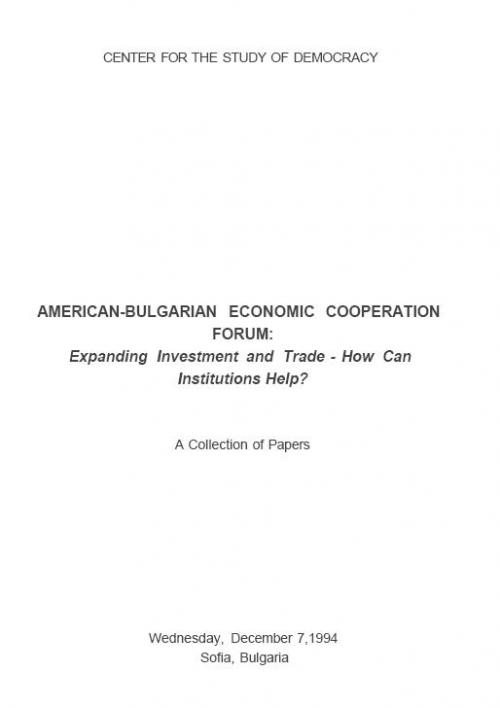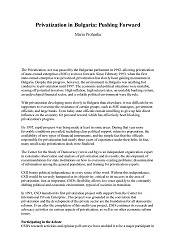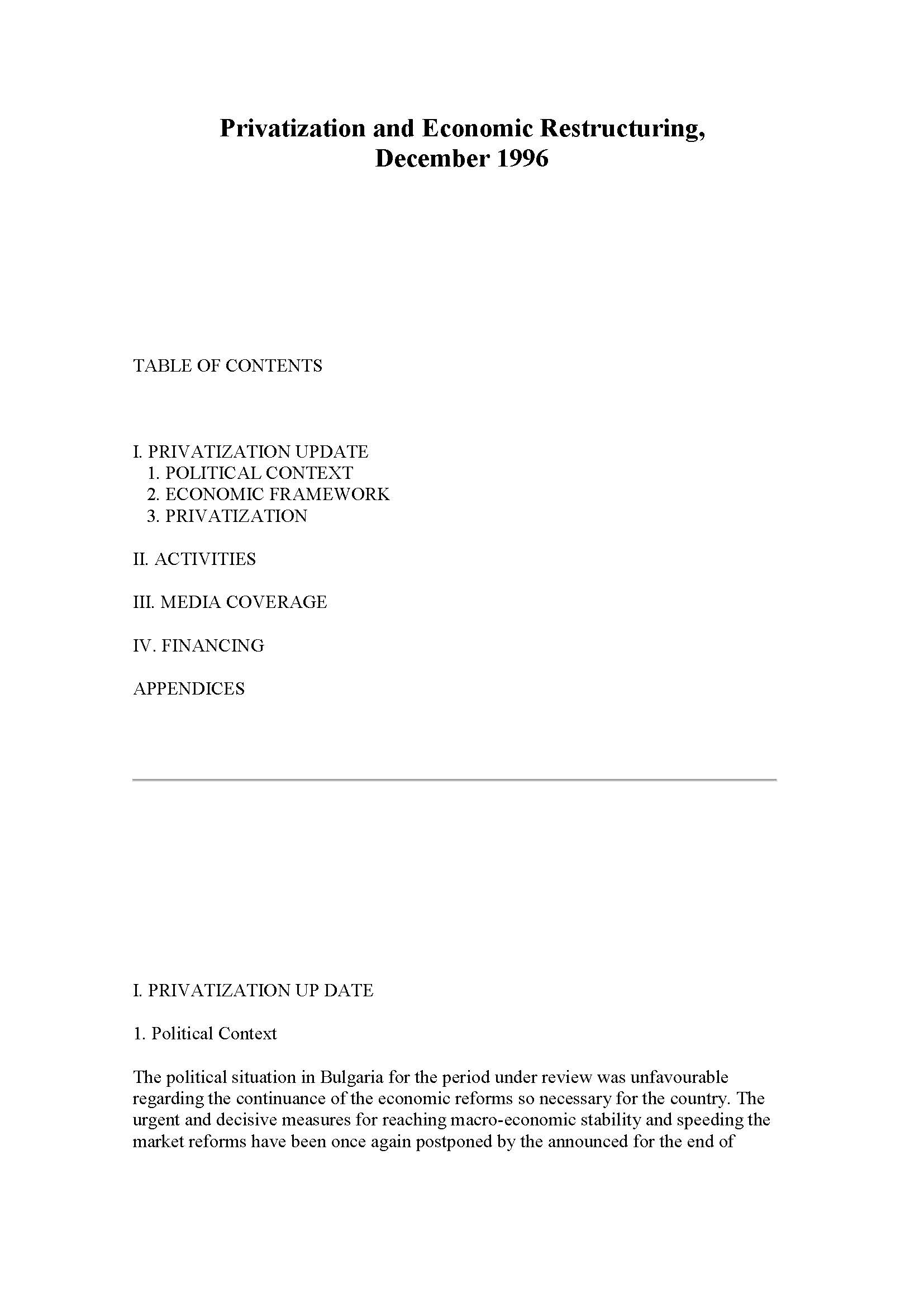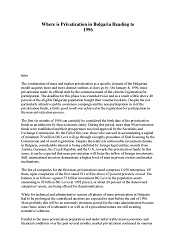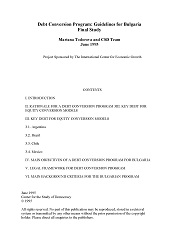
Determinants of European Union Enterprises Relocation in Bulgaria
Determinants of European Union Enterprises Relocation in Bulgaria
Bulgarian transition is influenced by radical events in the winter of 1997. The new economic policy is based on the introduction of the Currency Board and the framing of the reforms by the agreements with the International Monetary Fund in 1998 and 2001. In the period 1997-2000 massive foreign investments entered the country and were supported by the macroeconomic stability maintained through the Currency Board, the beginning of the radical structural reforms and an active privatization policy. The EU accession perspective and the start of negotiations added a significant external incentive to the vital internal necessities for capital to cover the "resource gap" of the reform policies. FDI could be beneficial for a host economy due to the following possibilities: • Creates linkages between foreign affiliates and local firms. • Domestic competitors may increase their productivity through the working of ‘demonstration effects’ (imitation of introduced innovations). • Training of local employees (managerial, marketing and technological knowledge could be later transferred to local firms). The article aims at identifying and measuring the determinants of the European union enterprises’ relocation in Bulgaria and their impact on the relations between foreign and local enterprises; an area, in which positive effects concerning the recipient country are expected. The paper consists of 3 different sections.
More...
